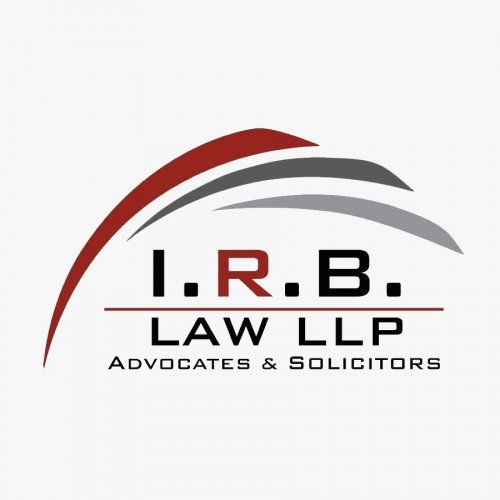Best Child Custody Lawyers in Jurong East
Share your needs with us, get contacted by law firms.
Free. Takes 2 min.
Free Guide to Hiring a Family Lawyer
List of the best lawyers in Jurong East, Singapore
Singapore Child Custody Legal Articles
Browse our 2 legal articles about Child Custody in Singapore written by expert lawyers.
- The Fundamentals of Commencing a Divorce in Singapore
- There is actually only one ground of divorce in Singapore; the irretrievable breakdown of the marriage which is to be found in Section 95 of the Women’s Charter. To prove that the marriage has irretrievably broken down, you must be able to prove to the Court one of the 5... Read more →
- Ancillary Matters: Child Custody, Care & Control, Access of Children
- This article will only apply to parties with children under 21 years old. The Court has repeatedly placed emphasis on the best interests of the welfare of the children. The children’s welfare is measured in terms monetary and physical comfort with the parent, the ties of affection with the parent,... Read more →
About Child Custody Law in Jurong East, Singapore
Child Custody Law in Jurong East, Singapore, like the rest of the country, adheres to the country's general family law provisions. It primarily prioritizes 'the welfare principle,' meaning that the child's welfare and happiness are paramount in any decision-making. The court often considers factors like financial capacity, the expressed wishes of the child depending on their understanding and age, the bond between the parent and the child, and the parents' lifestyle when deciding on child custody arrangements.
Why You May Need a Lawyer
At times, child custody disputes can be complex and emotionally charged. A lawyer can provide necessary expertise and guidance in such circumstances. They can help out in situations such as divorce proceedings, disagreements over physical custody of the child, situations involving child abuse or neglect, disputes about visitation rights, and child support issues.
Local Laws Overview
According to the local laws in Singapore, there are two key concepts to understand: Legal Custody and Physical Care and Control. Legal custody refers to the major decision-making for the child's welfare, while Physical Care and Control determines with whom the child will live. The court can allow Joint Custody, where both parents will share major decision-making, Sole Custody to one parent and visitation rights to another in some cases, or Hybrid or Split Custody considering child's welfare.
Frequently Asked Questions
What is the age at which a child's preference is considered by the court?
The court may consider a child's preference if they are of 'sufficient understanding and intelligence.' No specific age limit has been set, and it depends on a case-by-case basis.
Who gets the custody if both parents cannot agree?
If the parents cannot come to an agreement, the court will step in to decide. The decision will be made keeping the child's best interest in mind.
Can an unmarried parent get custody?
An unmarried mother in Singapore has primary custody of her child. However, an unmarried father may need to demonstrate commitment to taking responsibility for the child to get custody.
Can custody decisions be modified?
Yes, with a change in circumstances, custody decisions can be reviewed and modified by the court.
How does the court determine the child's welfare?
The court considers factors such as the emotional bond between the parent and child, the child's age, educational needs, and the parents' capacity to provide for the child's needs.
Additional Resources
You may visit the Family Justice Courts (FJC) for more information and resources. Additionally, the Ministry of Social and Family Development (MSF) and the Child Protective Service (CPS) can offer guidance on child welfare and protection services.
Next Steps
If you need legal assistance in child custody, secure a lawyer experienced in family law. Prepare to provide them with all relevant details about your situation and your child's well-being. Document any instances of the other parent's behavior that may affect your child's welfare to build a strong case.
Lawzana helps you find the best lawyers and law firms in Jurong East through a curated and pre-screened list of qualified legal professionals. Our platform offers rankings and detailed profiles of attorneys and law firms, allowing you to compare based on practice areas, including Child Custody, experience, and client feedback.
Each profile includes a description of the firm's areas of practice, client reviews, team members and partners, year of establishment, spoken languages, office locations, contact information, social media presence, and any published articles or resources. Most firms on our platform speak English and are experienced in both local and international legal matters.
Get a quote from top-rated law firms in Jurong East, Singapore — quickly, securely, and without unnecessary hassle.
Disclaimer:
The information provided on this page is for general informational purposes only and does not constitute legal advice. While we strive to ensure the accuracy and relevance of the content, legal information may change over time, and interpretations of the law can vary. You should always consult with a qualified legal professional for advice specific to your situation.
We disclaim all liability for actions taken or not taken based on the content of this page. If you believe any information is incorrect or outdated, please contact us, and we will review and update it where appropriate.









